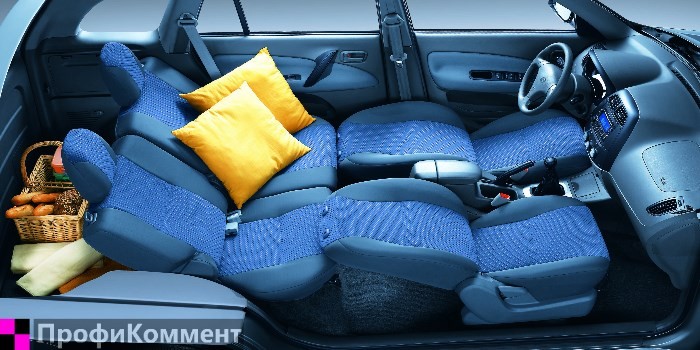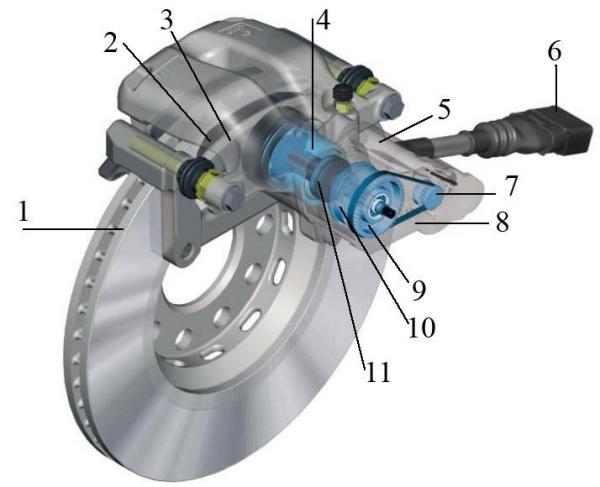
How to live in a car for a short time
Content
So, you've just moved to a new city and your apartment won't be ready for another month. Or maybe it's summer vacation and you just couldn't find a place. Or you want to see what it's like not to be tied to one particular place. Or - and we all know this can happen - maybe you just don't have options.
For some reason, you chose to live in your car.
Can it be done? Yes. Will it be easy? In many ways, no; in others, yes, if you can make some pretty serious adjustments to your expectations. But there are several ways to make your life easier.
Please note that the following tip is for those who plan to live in their cars for a short period of time. If you're going to be doing this for many months or even years, there's a lot more to worry about, much of which will depend on your own situation.
Consideration 1: Stay comfortable
First, decide where you will sleep. The back seat (if you have one) is often the only real choice, although if you're tall you won't be able to stretch out. Try every possible angle and every possible variation. If your rear seats fold down to give you access to the trunk, this can be a great way to get the legroom you need. If not, try folding the front seat forward. If the back seat doesn't work (or you don't have one), you'll have to move to the front seat, which is much easier if you have a bench seat or it reclines far. And if you have a van, you're probably wondering what all the fuss is about!
When choosing a sleeping position, make sure it is well stuffed: a small lump under your back will be very disturbing in the morning.
Now a more serious problem: temperature.
Problem 1: Heat. Warmth is something you can't do anything about other than smirk and endure it. But you can minimize the problem by buying a small fan that plugs into your cigarette lighter. Avoid the temptation to roll your windows down more than an inch or so, because it's just not safe to do this every night in most places.
Problem 2: Cold. With the cold, on the other hand, you can take steps to combat it, which is very important in cold climates during the winter. Understand this: you won't run the engine to warm up (because it's expensive and will draw unwanted attention), and you won't rely on an electric heater (because it uses too much energy). Instead, you will rely on isolation:
A good, warm sleeping bag or a set of blankets is essential in cold weather. And whether you're coming with blankets or a sleeping bag, take sheets - they pay off in comfort and extra warmth.
If it is very cold, put on a knitted hat, long underwear and even gloves - everything you need to keep warm. If you are cold before you go to sleep, it will be a long night.
The machine itself will help protect you from the wind and keep you warm to some extent, but be sure to open the windows half an inch to an inch. No, you will not suffocate if you close them all the way, but it will be terribly stuffy in the car; if you followed the advice about insulation, some cold air would be fine.
There are others environmental disturbances take into account also:
Avoiding noise is primarily a function of parking where it is quiet, but there is almost no place completely free from noise. Find a pair of comfortable earplugs and put them on. You can also partially avoid the light by choosing a good parking spot, but sunshades can also help. These same sunshades are also useful for keeping your car cool on sunny days and keeping prying eyes out.
Consideration 2: Physical needs
Need 1: Food. You will need to eat, and your car will not help you much in this regard. It's good to have a cooler, but don't plan on using one of those electric mini fridges that plugs into your cigarette lighter because it drains your battery too quickly. Also, do whatever works for you and your budget.
Need 2: Toilet. Presumably your car doesn't have a toilet, so you'll have to find access to a toilet that you can use regularly, including right before bed. You can also buy a self-contained portable toilet.
Need 3: Hygiene. You will need to find a place to swim. This means washing and brushing your teeth every day and showering as often as possible. The standard offer for this is a gym membership, which is a great idea if you can work out; other possibilities are truck stops (many of which have showers) and state parks. If you have access to public campgrounds that will meet all of these needs, they are often expensive. In any case, you need to solve this problem - neglecting hygiene will make every other aspect of your life much more difficult.
Consideration 3: Safety and the law
Living in a car can make you an easy target for criminals and police who are concerned that you are committing or may commit a crime.
To avoid becoming a victim, the main thing is to park in safe places and keep a low profile:
Step 1. Find a safe place. Safe places are those that are out of the way but not completely hidden; unfortunately, you may have to give up privacy and silence to stay safe.
Step 2: Choose a well lit area. Try to park in a lighted area, at least a little. Again, it may not be the most private or comfortable place, but it is safer.
Step 3: Be Careful. Don't make it obvious that you are staying overnight. This means that you must arrive late after you have done everything else you need to do, such as eating and taking care of your bathing and toileting needs. Drive slowly with the radio off, park and stop the engine immediately. Turn off all interior lights as soon as you can.
Step 4: Lock the doors. It goes without saying, but just in case: lock your doors!
Step 5: Keep windows open. Don't sleep with your window down more than an inch, even if it's hot.
Step 6: Remember Your Keys. Make sure your keys are close at hand, either in the ignition or in a place where you can grab them quickly if you need to be in a hurry.
Step 7: Have a mobile phone. Always keep your cell phone handy (and charged!) just in case.
You also need to avoid unwanted attention from the law, i.e. landowners, guards and police.
Step 8: Avoid Intrusion. The easiest way to avoid harassment from landowners is simple: don't park on their land.
Step 9: Ask Permission. Business-owned "public" car parks can be very good or very bad for overnight parking - check with the business first. (You can even indicate that you'll be "watching out" for suspicious behavior, so they actually get something out of your presence.)
Step 10: Avoid the suspicious eye. It's not enough for the police to make sure you haven't parked illegally (although that's important, of course). From a practical point of view, you need to avoid suspicious appearance, that is, no almost completely hidden places. If you're parking on the street, it's best to avoid parking in expensive areas and moving from night to night, because while you may not be committing any crime, the police respond to neighbor complaints and you don't need the hassle.
Step 11: Don't Pee Outside. Resist the temptation to urinate outside. It may not seem like a big deal, but it does require police intervention. In some states, it is even officially classified as a sex crime.
Consideration 4: Technical Issues
One of the biggest problems you will face is feeding things. At a minimum, you need to keep your cell phone charged, but you can consider a variety of other devices, from small fans and laptop computers to miniature refrigerators and heaters.
The biggest lesson is that you don't want to drain your battery overnight, so you need to be careful what you plug in. A cell phone is ok, most laptops are ok, a small fan is ok; anything more than this is not good: you are too likely to wake up with a dead and possibly even permanently damaged battery, and you don't want that.
Another problem is how to equip your car. Here is a list of things you should have but might forget:
spare keyinstalled in a secret key holder. Being locked out of the house would not be good.
Flashlight, ideally with a very dim setting when you're in the car.
Starter battery box. You'll be careful about draining your car battery, but you'll need one just in case. They aren't much more expensive than good patch cables, and you won't need someone else to give you a quick start. Note that this won't do you any good if you don't keep it charged, which can take hours, so plan ahead.
Electric jacks. Your car probably only has one cigarette lighter or accessory socket, which probably won't be enough. Purchase a three-in-one jack.
inverterA: The inverter converts the car's 12V DC to AC used in home appliances, so you'll need it if you have one. Be careful when discharging the battery.
If your car cigarette lighter/accessory plug turns off when the key is removed you have three options:
Do not start or charge anything electrical while you are parked (plan ahead).
Leave the key in the accessory position overnight.
Have the mechanic rewire the accessory plug so it doesn't go through the ignition, or add another accessory plug (probably the best in the long run and not very expensive).
The bottom line
For some, life in a car will be a grand adventure, but for most, it's an uncomfortable compromise. If you are doing this, you should prepare for some inconvenience and focus on the benefits, such as saving money.
Best of luck!
